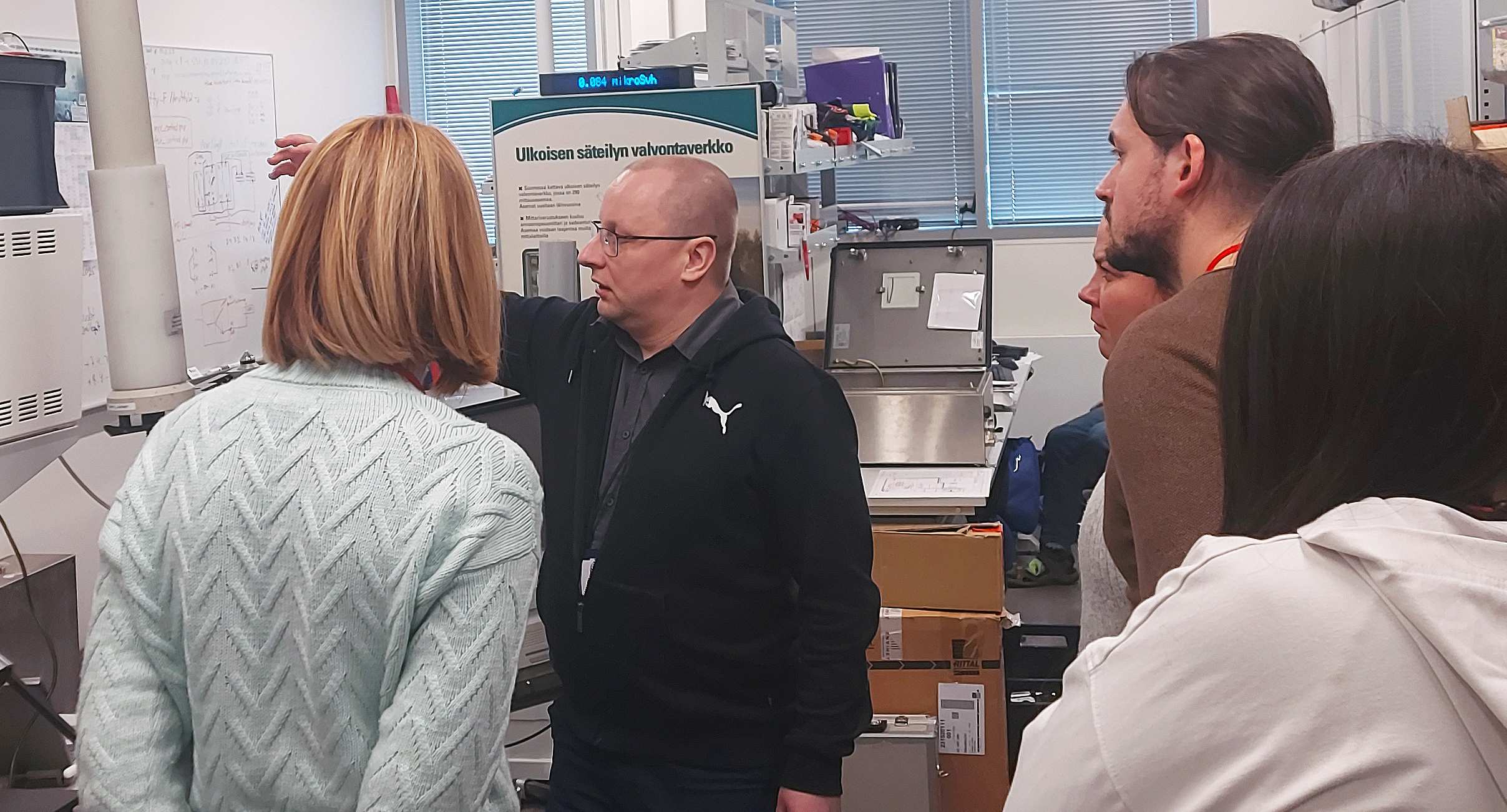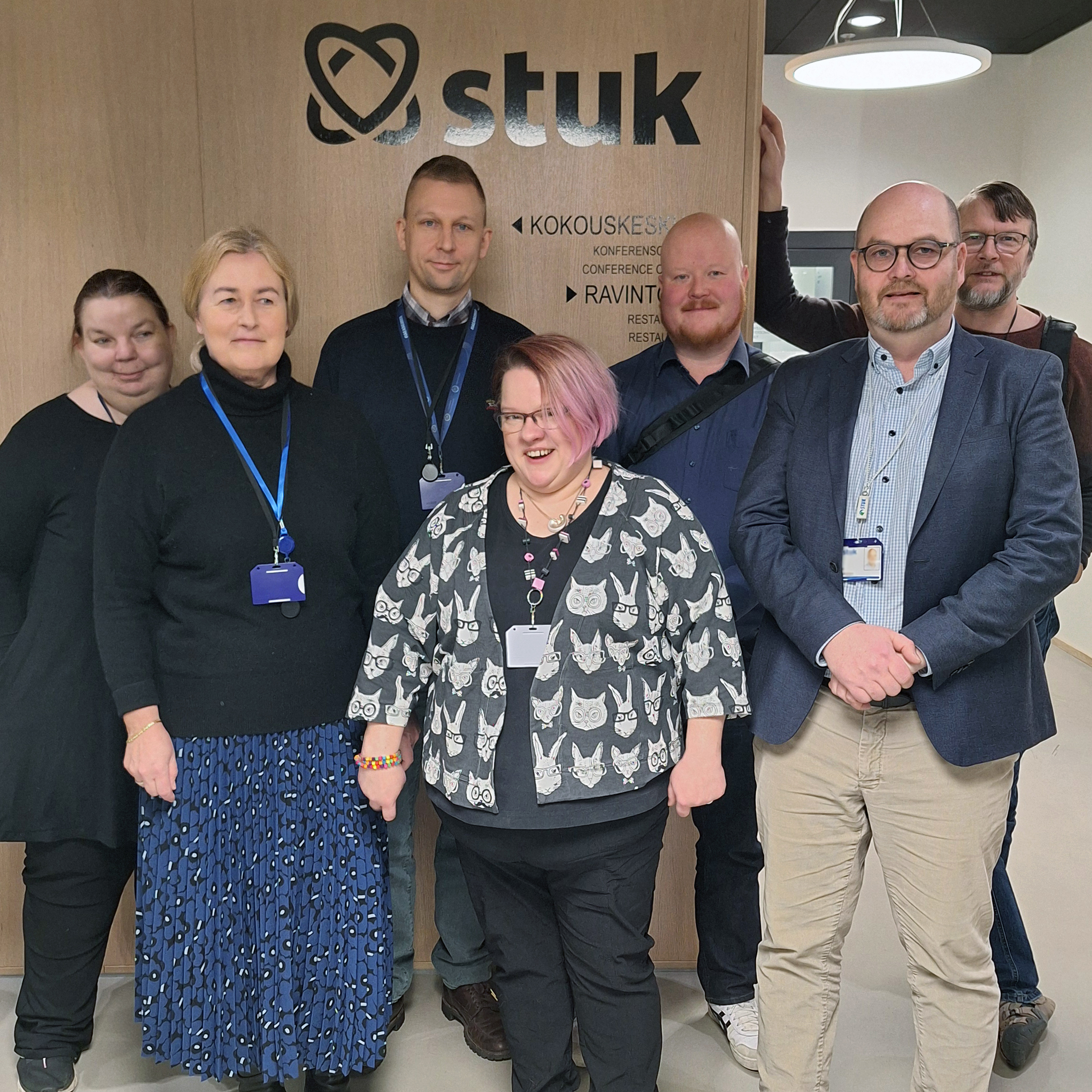International co-operation has a clear direction and purpose
In 2024, STUK supported the operations of the Ukrainian radiation authority and the EU’s common situational awareness and preparedness more broadly. In addition, STUK strengthened nuclear material safeguard competencies in Africa and participated in the development of the IAEA’s nuclear material safeguards and in global efforts to prevent nuclear terrorism. New international co-operation projects were also prepared.

STUK’s experts are actively involved in several international expert working groups and projects. This covers co-operation between authorities and international organisations (such as the IAEA, the European Commission and the OECD/NEA), bilateral co-operation with other countries' radiation and nuclear safety authorities, international expert tasks and co-operation with STUK International Oy. For STUK, international co-operation is a means of responding to global challenges in radiation and nuclear safety. International co-operation helps STUK develop regulatory control, the prevention of nuclear and radiation safety threats and the maintenance of competence.
Support for the radiation and nuclear safety authority of Ukraine
Last year, STUK supported the State Nuclear Regulatory Inspectorate of Ukraine (SNRIU) and its technical support organisation (SSTC NRS) via the FURN-IKI project funded by the Ministry for Foreign Affairs. The aim of the project is to deliver a radiation measurement vehicle to Ukraine and provide Ukraine with expert support for managing current radiation and nuclear safety challenges. In spring 2024, a FURN project kick-off meeting was organised in Poland along with a visit to Finland, during which the Ukrainian authorities familiarised themselves with environmental radiation monitoring.
STUK supports Ukraine in co-operation with the Nordic countries by various means, such as joint monitoring of the situation, implementing a regional co-operation development programme and preparing projects to support the reconstruction of Ukraine. The co-operation enhances the co-ordination of international support for Ukraine and makes efficient use of resources.
Support for Ukraine is also bolstered by the new Preparation for EURATOM Safeguards Alignment in EU (potential) Candidate Countries (PEUSA) project, funded by the European Commission and Finland
and aimed at providing support for the expansion of the European Union. The aim of the programme is to help EU member candidate countries and countries that intend to become candidates harmonise their nuclear material systems and efficient accounting and control systems with the EU membership requirements.
Strengthening Nordic and regional co-operation
In response to the changed safety situation, STUK has prepared, in co-operation with other
Nordic radiation safety authorities, a co-operation strategy aimed at strengthening radiation and nuclear safety co-operation in the region. The draft of a Nordic strategy progressed into the final phase during 2024.
In addition to the above, a regional co-operation development programme has also been drawn up and its implementation can begin in 2025. The programme is one of STUK’s strategic development programmes and covers the Nordic countries, the Baltic Sea region and Ukraine.
Work on strengthening nuclear material safeguards in Africa continued
In Africa, nearly half of the population, around 600 million people, live without a connection to the electricity grid. This is why nuclear energy is of interest to the industrialising and rapidly growing Africa. Approximately ten African countries have long-term plans to start using nuclear energy. Currently, only South Africa produces electricity using nuclear power. International agreements must be complied with before starting the use of nuclear energy in order to prevent the proliferation of nuclear weapons, for example. Obligations of these agreements must also be met, including, the organisation of regulatory control.
With the Uplifting Nuclear Safeguards in Africa (2023—2027) project, STUK has developed and strengthened nuclear material control in Africa by organising training events for authorities in South Africa and Namibia in co-operation with the African Nuclear Energy Commission AFCONE. To date, training has been provided to authorities from 26 African countries responsible for organising the IAEA’s national nuclear material safeguard procedures required by the Non-Proliferation Treaty (NPT). The project is funded by the European Union and Finland via the Instrument for Nuclear Safety Co-operation (INSC).
Did you know this about our operations?
STUK’s International Cooperation Unit is responsible for co-ordinating collaboration with international organisations and the radiation and nuclear safety authorities of different countries. In addition, it works in close co-operation with ministries and diplomatic missions to ensure that radiation and nuclear safety expertise is taken into account in decision-making and positions in international contexts. The unit also manages STUK’s international support and service projects and supports STUK’s leadership in their work in international forums.
"STUK's International Cooperation Unit was established just 24 days before Russia invaded Ukraine. The outbreak of the war and the events that followed changed the world order, and the usual patterns of international cooperation were turned upside down. As the world is in turmoil, STUK's radiation and nuclear safety expertise is asked to help solve acute challenges. In the midst of this turmoil, it has been noted that good international relations with both organisations and authorities in different countries are now even better. Working together has a clear direction and purpose, towards security and peace," says Elina Martikka, Head of Unit, International Cooperation.
